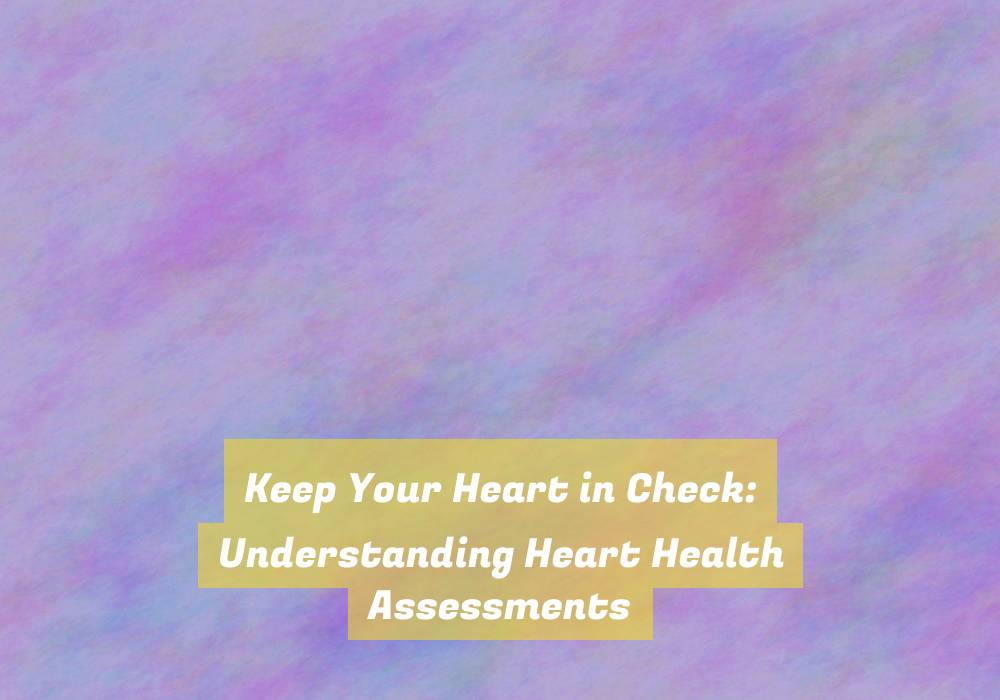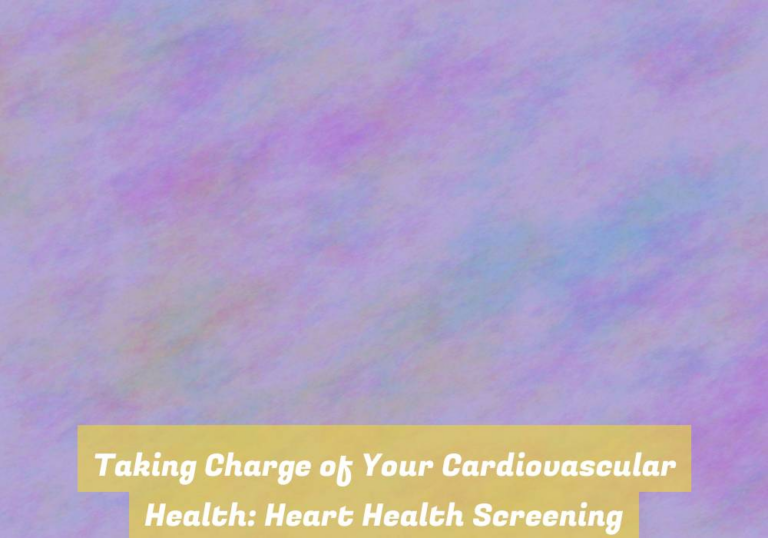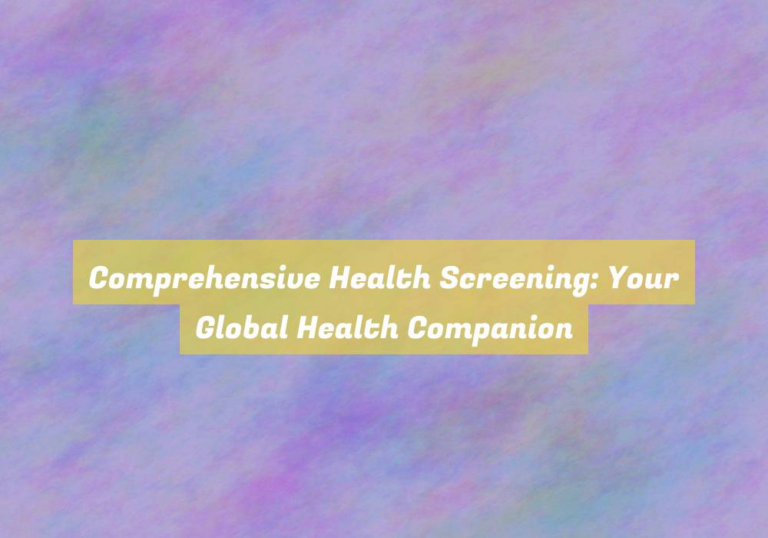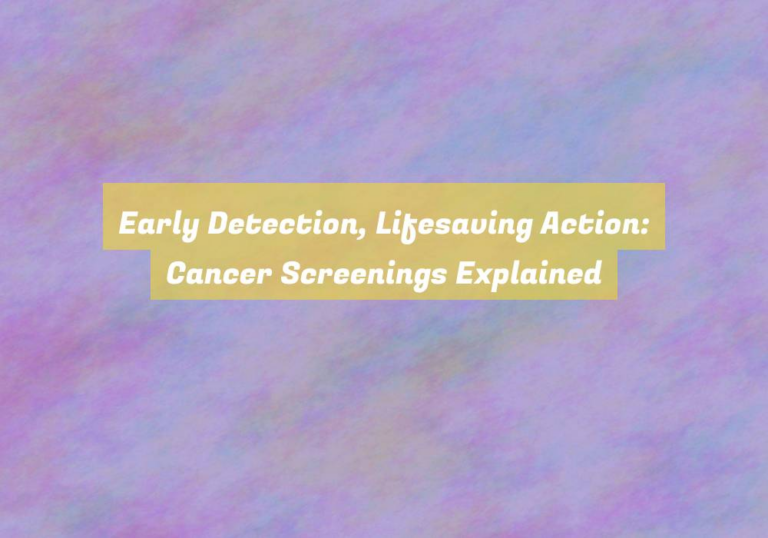Keep Your Heart in Check: Understanding Heart Health Assessments
You may think you have a clean bill of health, but did you know that underlying heart conditions often go undetected until they become a serious problem? Understanding the ins and outs of heart health assessments is crucial for maintaining a healthy heart.
From cholesterol and lipid panels to advanced assessments, there are a multitude of ways to keep your heart in check.
So, how exactly can you ensure your heart is in good shape?
Importance of Heart Health Assessments
Assessing your heart health regularly is crucial for maintaining overall well-being and preventing potential issues. By monitoring your heart health, you can catch any problems early and take steps to address them. Regular assessments also provide valuable information about your risk factors for heart disease, allowing you to make proactive lifestyle changes to improve your heart health.
Regular heart health assessments help you keep track of key indicators such as blood pressure, cholesterol levels, and heart rate. These indicators can alert you to potential issues and help you and your healthcare provider make informed decisions about your heart health. Additionally, assessments can provide motivation for adopting healthier habits, such as regular exercise and a heart-healthy diet.
Furthermore, heart health assessments can uncover underlying conditions that may not have obvious symptoms. Detecting these conditions early can lead to earlier intervention and treatment, potentially preventing more serious health complications down the line.
Understanding Cholesterol and Lipid Panels
Regular heart health assessments are essential for understanding your cholesterol and lipid panels, providing valuable information about your risk factors for heart disease. Cholesterol is a waxy substance found in your blood thatG??s necessary for building healthy cells, but high levels of cholesterol can increase your risk of heart disease.
A lipid panel is a blood test that measures your cholesterol levels, including low-density lipoprotein (LDL) cholesterol, high-density lipoprotein (HDL) cholesterol, and triglycerides. LDL cholesterol, often referred to as G??badG?? cholesterol, can build up in the walls of your arteries, leading to atherosclerosis, while HDL cholesterol, known as G??goodG?? cholesterol, helps remove LDL cholesterol from the bloodstream. Triglycerides are another type of fat found in your blood and high levels can also increase your risk of heart disease.
Understanding your cholesterol and lipid panels can help you and your healthcare provider make informed decisions about lifestyle changes, medication, and other interventions to improve your heart health and lower your risk of heart disease.
Monitoring Blood Pressure and Heart Rate
Monitoring your blood pressure and heart rate is crucial for understanding your cardiovascular health and identifying potential risk factors for heart disease. Keeping track of your blood pressure can help detect high blood pressure, also known as hypertension, which is a major risk factor for heart disease. ItG??s recommended to have your blood pressure checked at least once every two years if itG??s normal, and more frequently if itG??s borderline or high.
A normal resting heart rate for adults ranges from 60 to 100 beats per minute. Monitoring your heart rate can help identify irregularities or abnormalities that may indicate underlying heart conditions. You can easily measure your heart rate by placing two fingers on your wrist or neck and counting the number of beats in 15 seconds, then multiplying by four to get the beats per minute.
Exploring Advanced Heart Health Assessments
If youG??ve been diligent about keeping tabs on your blood pressure and heart rate, itG??s time to explore advanced assessments that can offer deeper insights into your cardiovascular health.
One such assessment is the coronary calcium scan, which detects the amount of calcified plaque in the coronary arteries. This test can help identify early signs of heart disease and assess your risk of a heart attack.
Additionally, advanced lipid testing goes beyond the standard cholesterol test to analyze various lipid markers, providing a more comprehensive understanding of your heart health.
Another valuable assessment is the cardiac CT angiography, which produces detailed images of the heart and blood vessels, helping to diagnose heart conditions and determine the presence of arterial blockages.
Furthermore, advanced genetic testing can uncover inherited conditions that may affect your heart, allowing for proactive management.
Exploring these advanced assessments can provide a more thorough evaluation of your heart health, offering valuable insights for early intervention and personalized treatment strategies.
ItG??s important to consult with a healthcare professional to determine which advanced assessments may be beneficial for your specific cardiovascular health needs.
Conclusion
So, keep your heart in check by understanding the importance of heart health assessments.
Monitoring cholesterol and lipid panels is another crucial aspect of maintaining heart health.
Additionally, keeping an eye on your blood pressure and heart rate is essential for a healthy heart.
DonG??t forget to explore advanced heart health assessments as well to stay on top of your cardiovascular health.
Remember, your heart is the most important muscle in your body, so take care of it and stay informed about your heart health.







